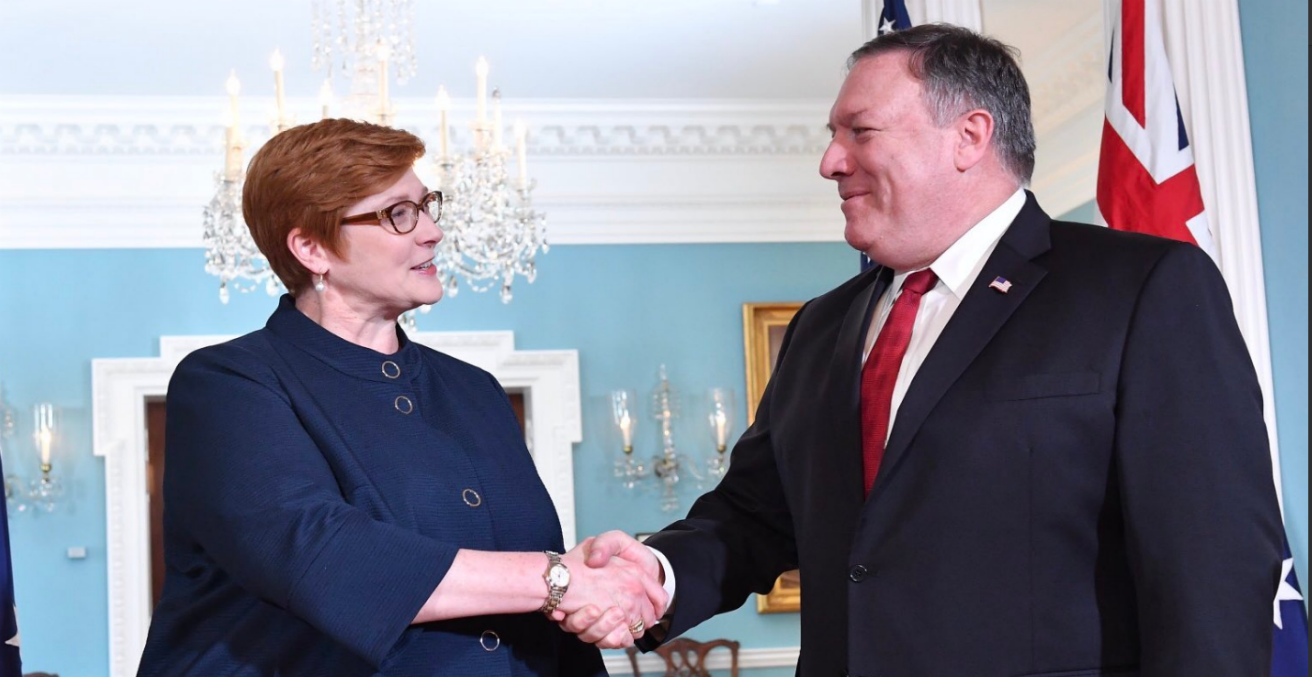Advocating the Rules-Based Order

To respond effectively to the emerging multipolar environment, Australia should firewall its support for the US alliance from its support for international law.
A little over a decade ago scholar Dr Coral Bell AO FAIIA predicted that the world was heading into an era of greater multipolarity, with six great powers: the United States, the European Union, China, India, Russia and Japan. Australian policymakers appear to agree that Bell got it right with, for example, the recent Intelligence Review stating that the ‘geopolitical consequences of economic globalisation are creating new centres of power’. What does this mean for Australian policymakers? Australia’s response, including advocacy of the importance of a rules-based international order, is strongly premised on the notion of the unique role of the United States in establishing and protecting the post-World War II international order. But is this characterisation accurate? And is Australia best served by adopting a policy narrative closely matched to what the United States itself, at least prior to the Trump Administration, was advocating?
Thick multipolarity in the Asia Pacific region
The United States’ lead role in founding the United Nations was to be sure, a critical moment, but it took place after changes in attitudes to human rights of many kinds. This is a complicated story but, in general terms, the establishing of the UN was a key step towards not only better relations between nation-states, but towards the dismantling of empires established in the nineteenth century. The discrediting of empires was itself based partly on the discrediting of Social Darwinism and scientific racism. This completed the struggle against slavery that began in the early nineteenth century with Britain’s banning of the slave trade and took centre stage in the US Civil War. Changes towards violence as an acceptable means of resolving disputes also preceded the founding of the United Nations. Alongside the denouncing of duelling as an acceptable means of solving disputes between individuals was a broader denunciation of war as an acceptable means of settling disputes between states. A series of treaties commencing with the Hague Conventions of 1899 and 1907 – and continuing with the League of Nations Covenant 1920, Kellogg Briand Pact 1928 and the Stimson doctrine of 1932 – culminated in the article 2(4) of the UN Charter prohibiting use of force except for self-defence or at the behest of the Security Council.
All of this means that the new multipolarity will not simply be a return to the nineteenth century balance of power, and that the role of the United States is not as a finger in the dyke holding back a tide of disorder and orgy of violence.
Multipolarity, Australian foreign policy and the rules-based global order
To date, Australia has been focussed on the least attractive manifestation of this new multipolarity, the emergence of an assertive, illiberal and economically- and militarily-powerful actor, China. In response it has embraced a new policy theme that seeks to emphasise what Australia sees as important in underpinning peace and prosperity, namely, support for a rules-based global order.
It is hard to explain the sudden surge in Australia’s usage of the term ‘rules-based global order’, and its shift in meaning, as not reflecting a convergence in Australian and US thinking. Australian policymakers had begun to employ the discourse of the rules-based global order somewhat earlier, during Labor Prime Minister Kevin Rudd’s first term in office from 2007–2010. Rudd used the term in his 2008 National Security Statement to designate support for multilateral institutions and in particular the United Nations. Subsequently the term appeared 11 times in the 2009 and 2013 Defence White papers, again designating support for the United Nations and rules. But then suddenly, at the same time as the USA was warning of the breakdown of a 70 year-old order, the usage of the term in the 2016 Defence White Paper jumped to 56 times. Moreover, emulating the United States discourse, there were references to the order being under strain after “70 years” of stability and prosperity.
On deeper reflection, however, welding the language of Australia’s foreign policy to our alliance partner has deficiencies. While China is sometimes described as a revisionist power, the United States has in its quite recent past more explicitly attempted to carve out unilateral exemptions to international law and to its keystone document, the United Nations Charter. Indeed legal scholar Shirley Scott sees the United States’ 2003 invasion of Iraq as having been the policy most damaging to the standing of international law in the post-World War II period.
Some of the gloss has started to come off Australia’s view of the United States since the election of Donald Trump, but US transgressions of international law remain a blind spot. While Australia has quite forcefully (and correctly) taken China to task for its policies in the South China Sea, there is not a similar willingness to question US actions. Since 2004 the United States’ Central Intelligence Agency has conducted drone strikes in Pakistan that have killed hundreds of civilians, including children, along with members of terrorist groups. The United States undertakes the operations under its own 2001 Authorization for Use of Military Force but under international law the legality of these operations in a sovereign state is dubious. In 2018 US air strikes on Syria took place without any legal justification from the Trump Administration and were probably illegal under international law. Regardless, the strikes were welcomed in a joint press statement from Prime Ministers Turnbull, Minister for Defence Payne and Minister for Foreign Affairs Bishop.
Australia’s embrace of the rules-based global order formula has then, at the end of the day, had the unforeseen, unplanned and somewhat unhealthy consequence of merging what were two separate strands of Australian foreign policy: support for global institutions and support for the alliance. Why unhealthy? Because while a military alliance is useful in order to protect against worst-case scenarios such as military attacks on our interests, a broader foreign policy seeks a world in which military attack is less likely to be seen as legitimate, and hence less likely to be undertaken. If Australia appears to quite supportive of a Great Power ally using force outside the UN Charter, then it’s not likely to be a convincing advocate for the latter.
To respond effectively to the emerging multipolar environment, Australia should firewall its support for the alliance from its support for international law. This would enable Australia to advocate more effectively for international law and global institutions, while retaining the considerable advantages of a partnership with the world’s most militarily powerful country for circumstances of dire need. Conceptually, Australian policy-makers should clarify their understanding of what support for liberalism means within the context of broader support for a rules-based global order. Endorsement of the economic aspects of liberalism should be decoupled from intolerance for states which do not practice Western liberal standards of democracy and human rights. In terms of presentation, Australian policymakers should gradually reduce the usage of the term ‘rules-based global order’ or ‘liberal order’ in policies, speeches and documents. Instead there should instead be a re-assertion of references to ‘international law’, beginning with the UN Charter. Substantively, Australia should become less inclined to reflexively support all US positions on matters of security, especially with regard to military operations.
Dr Greg Raymond is a research fellow in the Strategic and Defence Studies Centre. Before joining the ANU, Greg worked extensively in government, including in the strategic and international policy areas of the Department of Defence.
This piece is an edited extract from Greg’s article in the Australian Journal of International Affairs titled ‘Advocating the rules-based order in an era of multipolarity‘. It is republished with permission.
This article is published under a Creative Commons Licence and may be republished with attribution.





